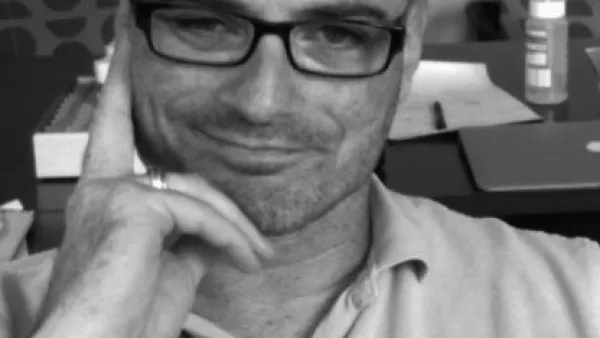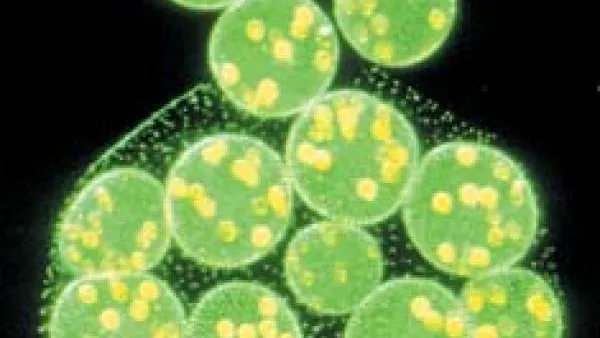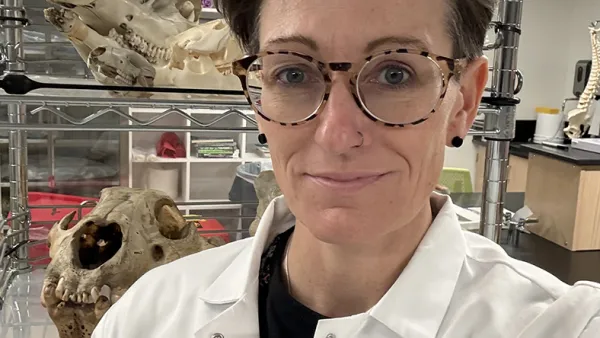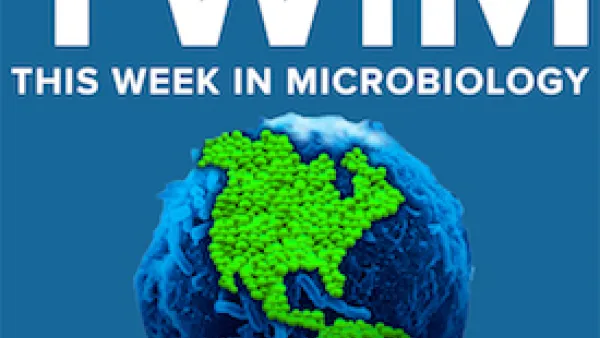JUNE 22, 2018
Ram Dixit named new co-director of the Plant and Microbial Biosciences, joins a legacy of innovative graduate programming
“We train our students to do any type of science. We want to give them the tools so that whether they go into industry, academia or government, they will benefit from what they learned in graduate school,” said Dixit.
Photo by Leo Yan

Ram Dixit, PhD, associate professor in the Department of Biology and associate director of education for the Center for Engineering MechanoBiology (CEMB), has been named co-director of the Plant and Microbial Biosciences (PMB) graduate program at Washington University in St. Louis.
Dixit is replacing Joe Jez, professor of biology, who will serve as the chair of the Department of Biology. Together, with Biology Professor Petra Levin, Joe Jez served as co-director of the PMB graduate program since 2013. Levin continues in her role as co-director. Dixit and Levin represent the plant and microbial arms of the PMB program, respectively.
PMB is one of twelve graduate programs that comprise the Division of Biology and Biomedical Sciences. PMB replaced the Plant Biology graduate program after a review led by Professor of Biology Barbara Kunkel revealed the strengths and weaknesses of the program.
“The Plant Biology program was unsustainable,” said Levin. It suffered from two major problems. First, some of the faculty members in the program were not studying plants. They were studying photosynthetic bacteria or primarily using plants as model systems to study processes fundamental to all organisms.
Second, while the Molecular Microbiology and Microbial Pathogenesis (MMMP) graduate program intended to capture all students interested in microbiology, in reality it was primarily drawing students interested in microbial pathogenesis, resulting in few, if any, MMMP students joining bacteriology labs such as those in the Department of Biology.
In 2013, PMB was created under the leadership of Levin and Jez after Bob Kranz, professor of biology, suggested a combined program in plant and microbial biosciences. Faced with a challenge of teaching students about two very different systems, plants and microbes, the program took a unique approach. “We are not teaching students to be plant biologists or microbiologists, but to be critical thinkers, good communicators, and independent scientists under the umbrella of plant and microbial biology,” said Levin.
Levin and Jez revamped the coursework. They added a core class that teaches students critical thinking and analysis using the primary literature. The course is designed to train students to read, think, and write.
Thus was born the new program’s core philosophy: by any model necessary. PMB’s goal is to train independent scientists rather than teach students how to work with plants or microbes.
The broad approach to graduate education at the core of PMB’s philosophy is what attracted Dixit to PMB in the first place. “We train our students to do any type of science. We want to give them the tools so that whether they go into industry, academia or government, they will benefit from what they learned in graduate school,” said Dixit.
Dixit is a firm believer in training and empowering independent scientists with the skills to cross disciplines throughout their scientific careers. Under the CEMB, he is working with colleagues at the Center’s prime institution, the University of Pennsylvania, to develop programming that not only trains the next generation of scientists in mechanobiology, but also teaches them to consider principles that cross kingdoms, ie. animal and plant cell commonalities. His leadership role with CEMB and now his new position as co-director of PMB emphasizes this commitment. “For students interested in interdisciplinary research, PMB and CEMB share that philosophy,” said Dixit.
Dixit previously served on the PMB admissions committee, most recently as chair. He has also been involved in teaching modules for required graduate courses, playing a role in recruitment, and planning retreats. “PMB is my primary graduate program, so I have been involved in it since the beginning,” said Dixit.
Now as he transitions into his new role, Dixit wants to make sure that the students have access to all the resources and help that they need, including mental health resources and strong mentorship. “I view the co-directors as student advocates. The student’s mentor is their research guide. So we are the student advocates,” said Dixit.



